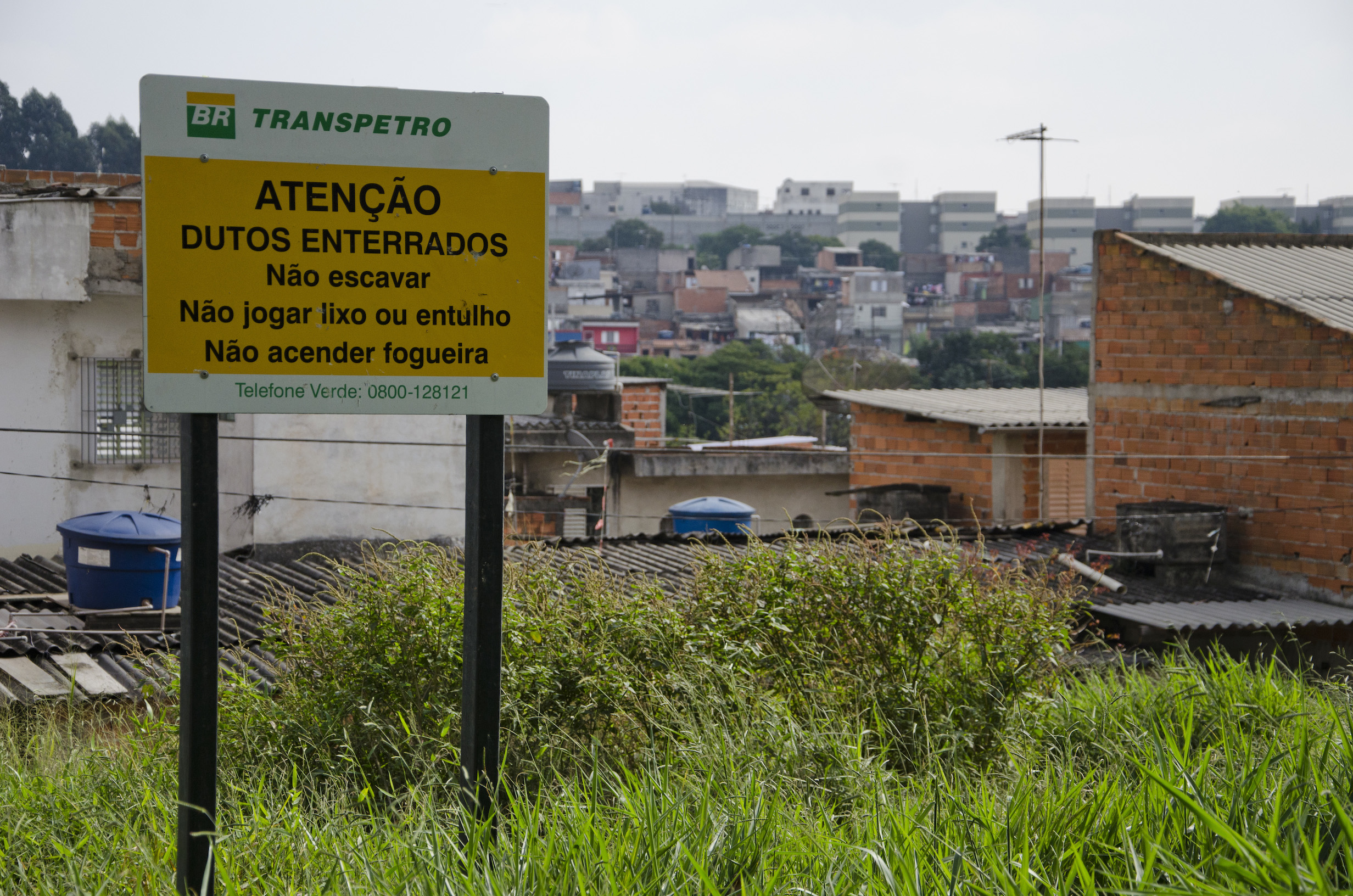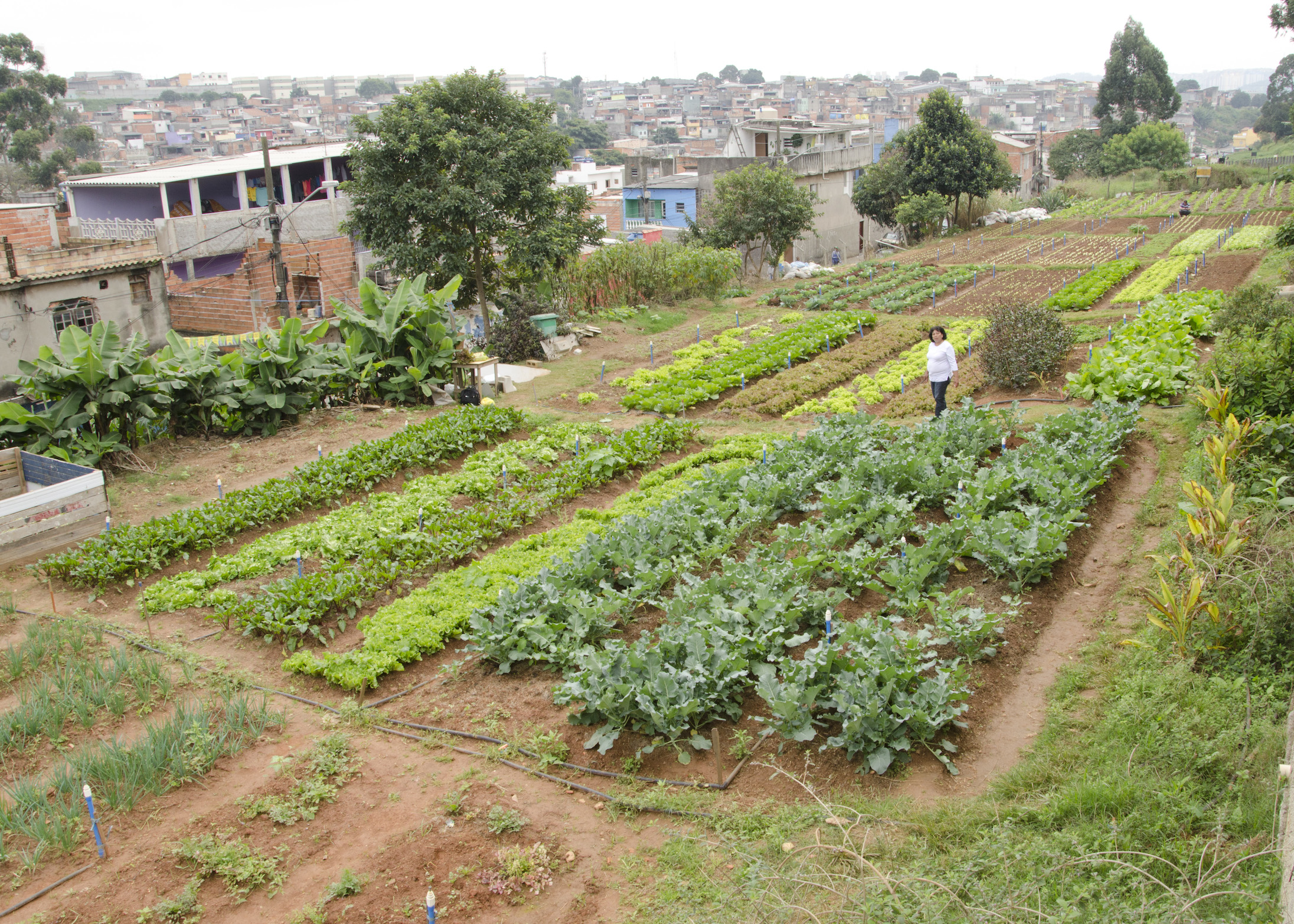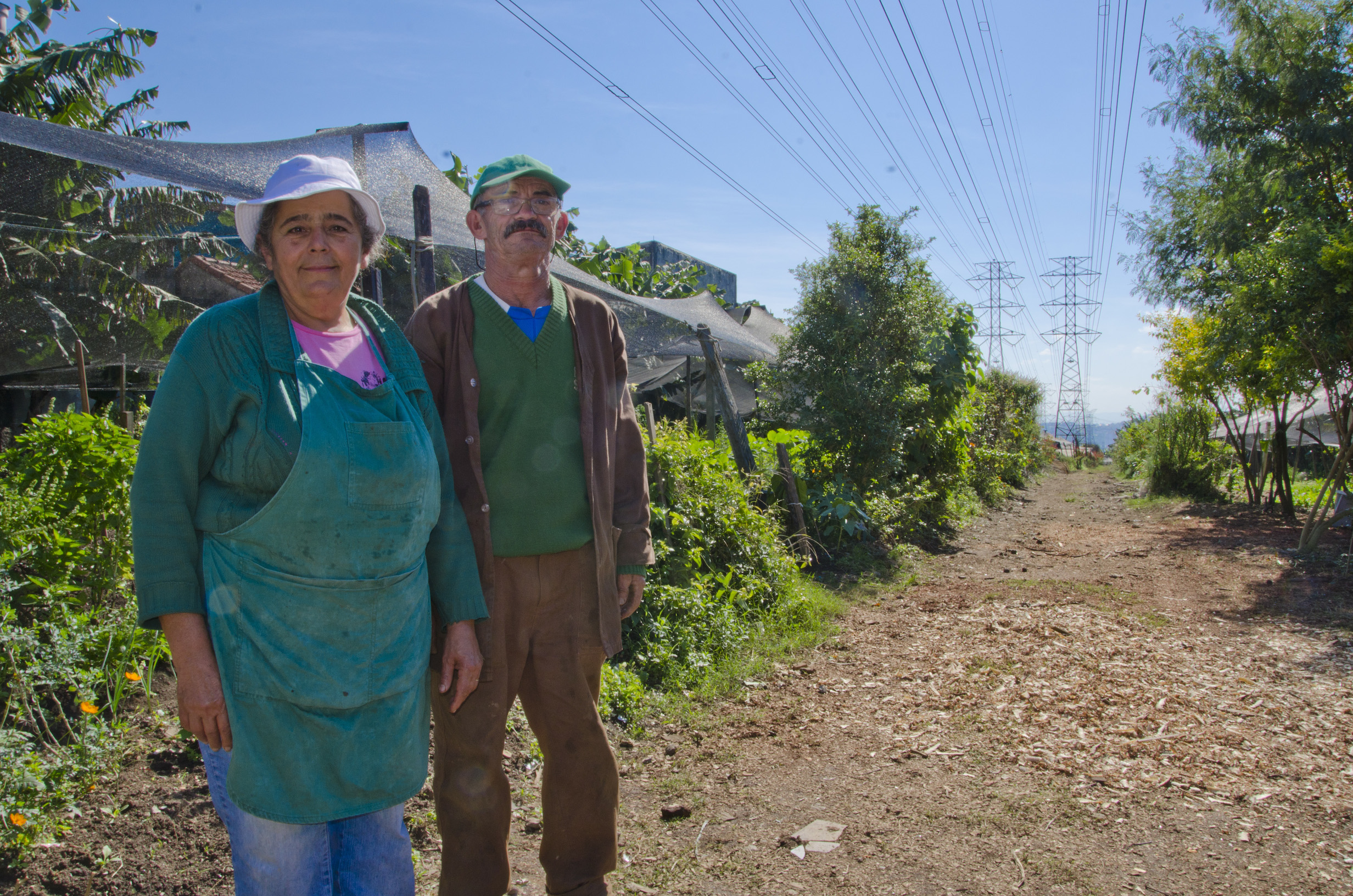



Los terrenos urbanos vacíos son el elemento esencial para la creación de un huerto comunitario. La expansión urbana ofrece espacios donde pueden crearse estos huertos. Entre estas zonas se encuentran los terrenos situados bajo las líneas eléctricas, cerca de oleoductos, terrenos de propiedad municipal o propiedades privadas.
Ciudades sin Hambre celebra contratos con los propietarios de los terrenos sobre el uso de la zona correspondiente. El terreno se cede gratuitamente a la ONG. A su vez, los propietarios pueden estar seguros de que su terreno se va a utilizar como huerto comunitario, lo que evita el uso indebido de zonas como vertederos y ayuda a prevenir daños intencionados en infraestructuras como tendidos eléctricos u oleoductos. En estas zonas se prohíben otros usos del suelo, como la construcción de viviendas. De ese modo, no se producen conflictos de uso del suelo.
Entre los contratistas de uso del suelo figuran, por ejemplo, el proveedor de energía Petrobras, Transpetro o Eletropaulo.
Con un número creciente de huertos comunitarios y una fuerte presencia en los medios de comunicación dentro y fuera de São Paulo, Ciudades sin Hambre se ha ganado la reputación de ser una ONG con la que los propietarios de terrenos privados y públicos quieren colaborar. Por eso, acceder a nuevas zonas no suele ser problemático.
- terrenos urbanos vacantes
- propietarios de terrenos dispuestos a firmar un contrato de uso del suelo con Ciudades sin Hambre
- confianza en Ciudades sin Hambre: una buena reputación como socio fiable gracias a una fuerte presencia en los medios de comunicación y al boca a boca tanto en los círculos ciudadanos como en el ámbito empresarial y público
- Debido a la contaminación del suelo, no todas las zonas de la ciudad pueden utilizarse para el cultivo de plantas. Por ello, es necesario tomar muestras del suelo y analizarlas en un laboratorio antes de empezar un huerto. No se construirán huertos en suelos que no cumplan los requisitos.
- El trabajo de relaciones públicas con los medios de comunicación, principalmente la televisión y los periódicos, es importante: Ha contribuido y sigue contribuyendo a la buena reputación de la ONG.